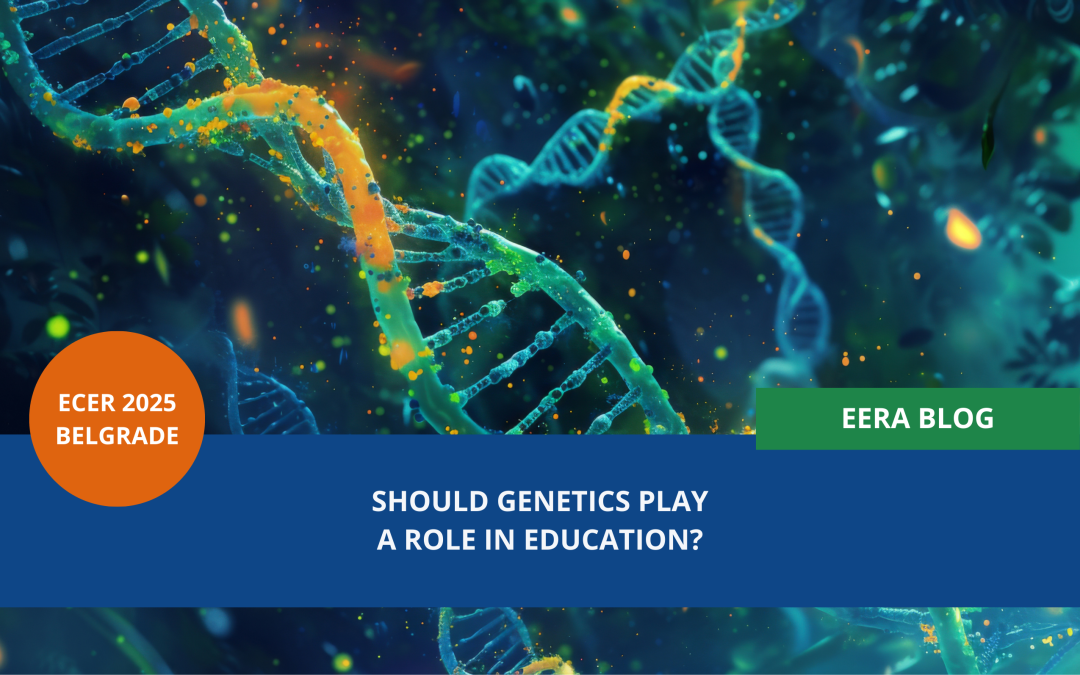A startup company promising to test embryos for intelligence has made headlines recently. Nucleus Genomics, a Silicon Valley-based organization backed by millions of dollars from technology investors, claims its platform will enable “genetic optimization” of embryos, with IQ one of many traits and medical conditions it can measure and assess. The educational implications of such a technology are significant, raising the prospect of students entering schools with genetically-optimised advantages over others. That is, if the technology works as the company claims.
The problem with Nucleus Genomics, as the bioethicists Arthur Caplan and James Tabery have argued in Scientific American, is that its promises are false and are not supported by scientific evidence. Nucleus is “what happens when you Silicon Valley-ify diagnostic genetics”: it has cast professional scientific consensus aside and instead sought rapid income from wooing venture capital investors and making sales pitches to wealthy customers. Parents are now being marketed expensive embryo testing, as well as other Nucleus services, with misleading promises about “investing” in their family’s future through genetic tweaks.
Genetically-optimised learning
Although the Nucleus platform is clearly “snake oil”, it highlights how genetic testing and diagnosis of traits such as intelligence has become of growing interest—not only in the medical domain, but with implications for education. On the Nucleus website, one listed “collaborator” is Professor Robert Plomin, a behavioural genetics specialist who has published extensively on the potential uses of genetic testing data in the educational context.
Plomin’s controversial 2018 book Blueprint: How DNA makes us who we are, proposed that genetic data from consumer tests could in the near future be used to inform decisions about schooling. Parents could use genetic data to decide which school would suit them best, or genetic information could even be deployed in a pedagogic model that Plomin termed “precision education”.
Precision education would involve testing children for probable future outcomes, and adjusting or personalising teaching practices to maximise their achievements. In a more recent co-authored article, Plomin and colleagues proposed that commercial genetic testing platforms could be used for precisely this purpose, particularly for the “genetic prediction of academic underachievement and overachievement” and to customise education on that basis. While the scientific validity of the Nucleus tests is highly questionable, it fits neatly with the vision of precision education that some scientists now promote. It’s a vision of genetically-optimised learning based on DNA testing.
Educational genomics
In a project funded by The Leverhulme Trust, my colleagues and I have been examining the emergence of novel data-intensive forms of biological science and their implications for educational practice and policy. This includes the growing area of “educational genomics”. We mapped out the scientific networks that are conducting educational genomics research, the scientific claims they are making, and the methods and technologies that underpin their knowledge-making practices in a recent paper.
Educational genomics is a fast-growing area of research, with scientists, research centres, networks and international associations that span Europe, the US, southeast Asia and Australia. The scientific knowledge being produced is presented as being highly relevant to educational practitioners and policymakers. Not all scientists conducting such research view the precision education model as a viable or desirable prospect. However, there does seem to be a converging consensus on the possibility of early years genetic testing for learning difficulties, as a report for the Early Intervention Foundation indicates.
A recent report from the Nuffield Council on Bioethics shows that educational genomics research also raises sharp ethical challenges. In particular, it pinpoints the risks associated with the use of commercial genetic testing technologies like those launched by Nucleus, and of precision education models proposed by Plomin and others. Genetic information collected in the early years, at birth, or even before, could lead to forms of genetic stigmatization, discrimination or fatalism, and to the fallacious belief that one’s DNA determines their educational prospects.
Genetically-scored students
Educational genomics is clearly risky science, and the “geneticization of education” it represents demands ongoing bioethical scrutiny. An additional question, however, is whether it is even valid science. Can scientists really detect traces of educational outcomes, or biological indicators of underachievement, from data-mining DNA?
Underpinning educational genomics research is a very specific method, called polygenic scoring. It involves collecting masses of genetic data from huge samples, analysing it with sophisticated computational technologies, and then producing statistical scores that are said to predict educational outcomes.
It is on the basis of these polygenic scores that various proposals have been made to incorporate genetic data into educational practice or policy. In addition to the precision education model, these include proposals for early years ability screening for purposes of genetically-based differentiation in classrooms. Genetically scoring students could, according to others, be the basis for educational decision-making at the policy level. In the popular 2021 book The Genetic Lottery, for instance, behavioural geneticist KP Harden proposed using student polygenic scores as additional information to assess “what works” in policy intervention evaluations.
But there are significant problems with using polygenic scores in education, which extend beyond ethical risks and controversies to questions of scientific accuracy. In a recent in-depth analysis of polygenic scoring methods, Callie Burt argued that the scores give the impression that genetics plays a significant role in educational outcomes, when those outcomes are primarily influenced by social factors. The underlying scientific evidence associating genetic biomarkers with educational outcomes remains too weak and confounded by non-genetic factors to support any form of translation into policy or practice whatsoever.
Controversial science
Others agree. The behavioural geneticist Eric Turkheimer recently pointed out that a new polygenic scoring study undermined the confident claims of previous educational genomics research. The results from the study, in Turkheimer’s analysis, show that “unconfounded direct genetic effects” make almost no contribution at all to complex outcomes like educational achievement.
“This is what Plomin referred to as the ‘game changer’, the fortune teller that was going to reveal to us who we really are”, Turkheimer argued, describing polygenic scores as “the basis for all the crazy, unethical enthusiasm for commercial genomic information and embryo selection” and “the big hopes for precision education”.
But if DNA plays an almost negligible role in influencing an individual’s outcomes, it would be nonsensical to base educational practices or policies on it. If this is the case, it remains highly questionable whether genetics should play any role in education at all — regardless of the rapid growth in published educational genomics research, and the rise of commercial genetic testing companies that promise parents they can optimise their children.
Now that educational genomics has established itself as a scientific domain, and commercial genetic testing is growing rapidly, educators and educational researchers will need to remain highly vigilant about how new genetic explanations are asserted for highly complex educational processes and outcomes. Far from being a settled scientific matter, as some advocates insist, the role of data-intensive biological science in education remains fraught with scientific and ethical controversies.
ECER 2025 – Keynote
The birth of the bio-edu-data-sciences: biology, data, and the consequences for educational research, policy and practice
“As the bio-edu-data-sciences continue to develop evidence of the genetic and neural aspects of learning and educational outcomes, will they complement and advance, or displace and marginalize existing practices of educational research? What futures of educational research do the bio-edu-data sciences suggest lay ahead in the next decade, and what should be done about it?”

Dr Ben Williamson
Moray House School of Education and Sports, University of Edinburgh
Dr Ben Williamson is a Senior Lecturer and Co-Director of the Centre for Research in Digital Education at the Moray House School of Education and Sport, University of Edinburgh. His research examines the connections between digital technologies, data practices, and education policy, practice and governance. Recent and current research projects explore data-intensive biology in education and sociodigital learning futures.
Ben is the author of Big Data in Education: The digital future of learning, policy and practice, an editor of the World Yearbook of Education 2024: Digitalisation of Education in the Era of Algorithms, Automation and Artificial Intelligence, and a co-editor of the journal Learning, Media and Technology.
08 - 09 September 2025 - Emerging Researchers' Conference
09 - 12 September 2025 - European Conference on Educational Research
Since the first ECER in 1992, the conference has grown into one of the largest annual educational research conferences in Europe. In 2025, the EERA family heads to Serbia for ECER and ERC.
In Belgrade, the conference theme is Charting the Way Forward: Education, Research, Potentials and Perspectives
Emerging Researchers' Conference - Belgrade 2025
The Emerging Researchers' Conference (ERC) precedes ECER and is organised by EERA's Emerging Researchers' Group. Emerging researchers are uniquely supported to discuss and debate topical and thought-provoking research projects in relation to the ECER themes, trends and current practices in educational research year after year. The high-quality academic presentations during the ERC are evidence of the significant participation and contributions of emerging researchers to the European educational research community.
By participating in the ERC, emerging researchers have the opportunity to engage with world class educational research and to learn the priorities and developments from notable regional and international researchers and academics. The ERC is purposefully organised to include special activities and workshops that provide emerging researchers varied opportunities for networking, creating global connections and knowledge exchange, sharing the latest groundbreaking insights on topics of their interest. Submissions to the ERC are handed in via the standard submission procedure.
Prepare yourself to be challenged, excited and inspired.

